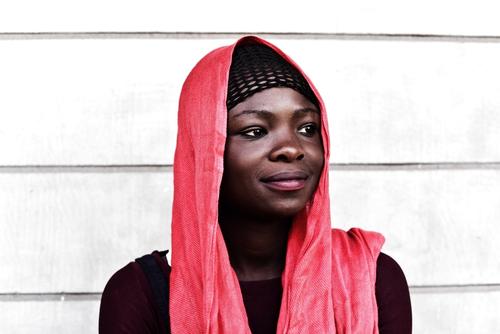Adolescent women often miss out on the family planning they need to plan their pregnancies and their lives
Asina was still in high school when she fell pregnant with her first child in Kibera, a slum settlement in Nairobi, Kenya. She dropped out of school and ran away from home due to the shame she felt around the pregnancy. After coming to the Médecins Sans Frontières (MSF) clinic for antenatal care and to deliver her baby, she finally received some crucial information about family planning.
“I listened carefully and I am now on a three-month contraception method in injection form. It is important to plan myself as the cost of living is high. I cannot afford to raise many children,” says Asina, now 19.
Asina’s story is typical of many adolescent girls in Kibera, and indeed around the world, who miss out on the family planning information they need to plan their pregnancies, and the rest of their lives. In a number of countries the unmet need for contraception is higher among young women aged 15–19 compared to 15–49, so there remain gaps in reaching girls.[1]
As was the case for Asina, unintended pregnancy is a factor in education being cut short for young women, so encouraging planned pregnancy can assist in girls developing capacities that will strengthen their future, and the future of their children.
As well as socio-economic impacts, early pregnancies can also have associated health risks for both the mother and infant. For example, as the young mothers’ bodies are physically not yet fully developed, a pregnancy can lead to increased risk of premature birth, low-birthweight babies and stillbirth. Family planning can reduce pregnancies that expose young girls to these risks.
However, worldwide, many young women do not receive the societal or family support they need to participate in family planning and antenatal care as a whole. In some cases contraception is discouraged for adolescents because it is perceived to encourage sexual activity that ‘shouldn’t be’ occuring.
Monique Tondoi, an MSF patient support supervisor in Kibera, says that young women in her area often feel stigmatised when they attempt to access contraception methods. “At times they feel, when they go to the hospital, that the services are not welcoming, so they tend to remain with their problems… in some centres, they are told contraceptives are made for married people,” she says.
Family planning ideally captures women and their partners before their first pregnancy, during antenatal care, and then in the postnatal period, looking ahead to managing the next pregnancy for the best outcomes for all.
However in many of MSF’s projects around the world we find that adolescents are missing out on information such as how to prevent pregnancy, and are unaware of pregnancy care.
In Kibera, many girls do not know where to get sexual health information. “Most of these girls have single parents who are not always in a position to be there for them. Then the parents expect the teachers to provide such information. Finally the young girls end up acting on inaccurate information,” says Monique Tondoi.
MSF uses a number of innovative approaches in Kibera to provide accurate and timely information to young people. The team runs education sessions in schools, organises school debates on sexual reproductive health topics, and provides ‘talking boxes’ where students can post anonymous questions on sexual health.
Monique Tondoi says that her wish for International Women’s Day is that more information is made accessible for adolescents.
“Knowing is really power, because when you know, you cannot be coerced to do something that will put you in danger. You are then able to make informed choices about your sexual health.”



